Nicola Sturgeon and Rishi Sunak's smiles mask a deep political divide
- Published
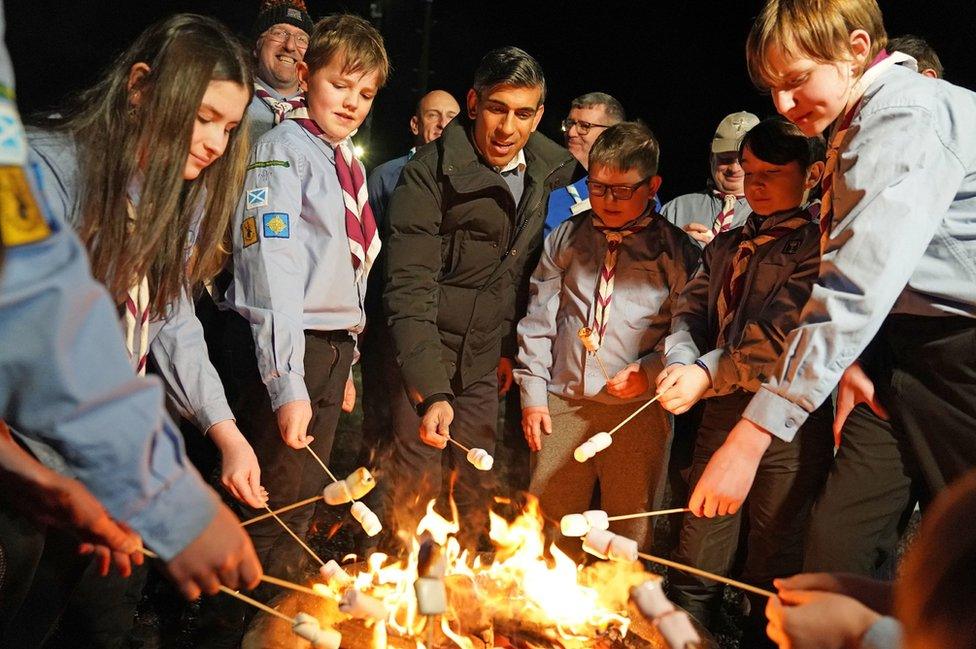
Rishi Sunak toasted marshmallows with Sea Scouts in the Highlands
Legend has it that my brilliant, late colleague Kenny Macintyre once secured an interview with Margaret Thatcher by jumping out of a broom cupboard in her hotel.
Times have changed somewhat.
These days most journalists are lucky to get within a mile of a prime minister on a political visit.
Rishi Sunak's trip to Scotland was no exception. It was carefully choreographed and tightly controlled.
Watched by a very small band of invited media, he began his visit to the Highlands by toasting marshmallows with Sea Scouts, and chatting about search and rescue with emergency workers.
The man who famously loves Coca-Cola fizzed with energy and seemed extraordinarily enthused about it all.
Not that any passing member of the public would be likely to witness that for themselves.
When Mr Sunak arrived for dinner with First Minister Nicola Sturgeon a flashy Land Rover with an official driver shuffled backwards and forwards blocking our cameraman's valiant efforts - legal and on public land - to film him entering the hotel.
Photographs issued later by Number 10 showed the two leaders shaking hands and smiling broadly.
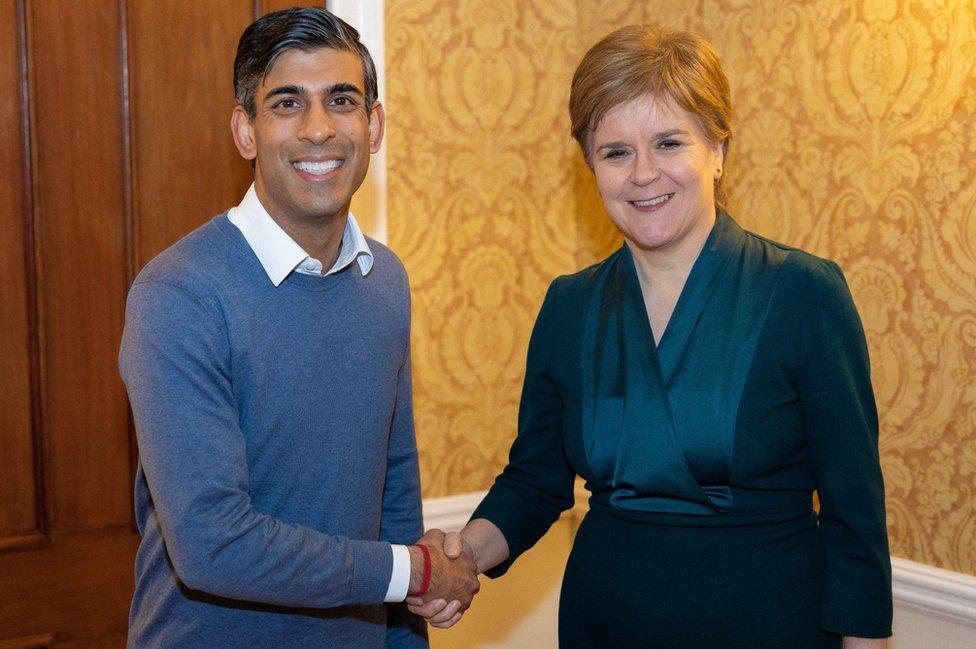
Rishi Sunak and Nicola Sturgeon met in Inverness on Thursday
The leader of the Conservative and Unionist Party had dinner with the leader of the party committed to ending the union, and the River Ness continued to rush to the sea.
You might think that such adult interaction is a low bar, the absolute minimum we could expect from our political leaders. After all, regardless of their differences, both politicians run governments which simply must work together day in day out.
Maybe, but in truth that bar has not always been cleared in recent years.
The first minister struggled to hide her contempt for Boris Johnson. Liz Truss promised to ignore Ms Sturgeon and, during her brief tenure in Downing Street, was as good as her word.
Still, the Sunak/Sturgeon love-in only goes so far.
It was striking that both went out of their way to avoid being seen in public together.
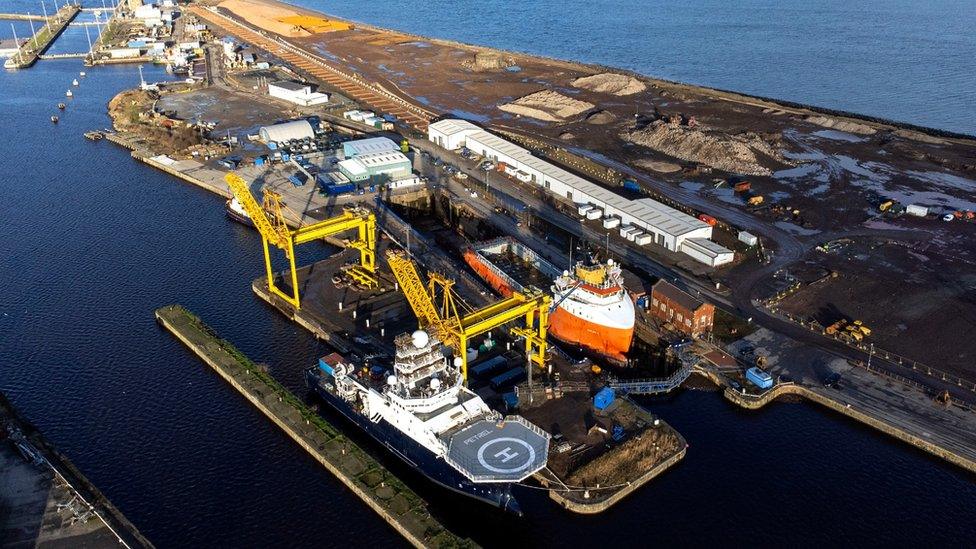
One of the green freeports will be craeted on the Firth of Forth
Although a deal to create two "green freeports" on the firths of Cromarty and Forth was billed as a joint announcement between the UK and Scottish governments, only one of the two - Mr Sunak - was present for the formalities in Invergordon.
Ms Sturgeon was back in the central belt chairing a crisis meeting about the emergency in the NHS.
In fact after Thursday night's dinner, which lasted abour an hour and a quarter, the first minister was off like a rocket, giving the most perfunctory of interviews to the BBC in the murk outside the hotel, her breath frosting on the chilly Highland air, before heading back down the A9.
A senior member of her retinue who complained about the cold was given short shrift by a journalist (OK, me) who had been standing outside for several hours.
Both sides described their chat as "cordial", but let's not get carried away. The wide grins in the official pictures belie deep political differences.
I'm told that topics which came up at the meeting included public sector strikes, where the Conservatives and the SNP are sharply at odds.
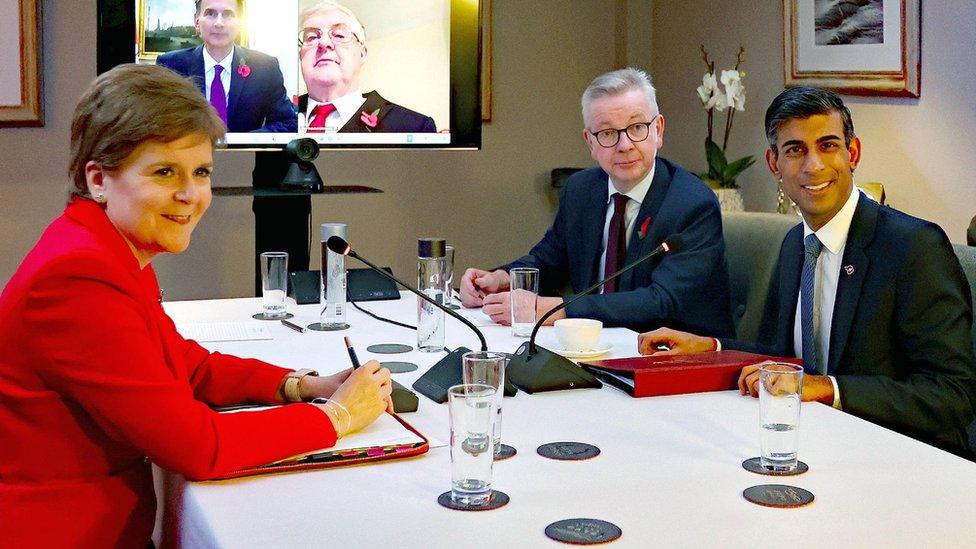
The UK government has tabled legislation which would give its ministers the power to ensure minimum service levels during industrial action in certain critical sectors - such as hospitals, firefighting and the railways - which would curtail the right of some workers to strike.
It says the proposed law - which would apply in England, Scotland and Wales - is necessary to "ensure the safety of the British public".
Labour call it a bill for sacking nurses. The Scottish government says Westminster already has some of the most restrictive anti-strike legislation of any democracy and describes the proposals as a further attack on workers' rights.
There is also disagreement about NHS funding.
Ms Sturgeon wants more money from Westminster. Doesn't she always, say her critics.
Mr Sunak says funding is already at a record level - and rising. The topic of the current emergency in the NHS reportedly took up more than half of the talks.
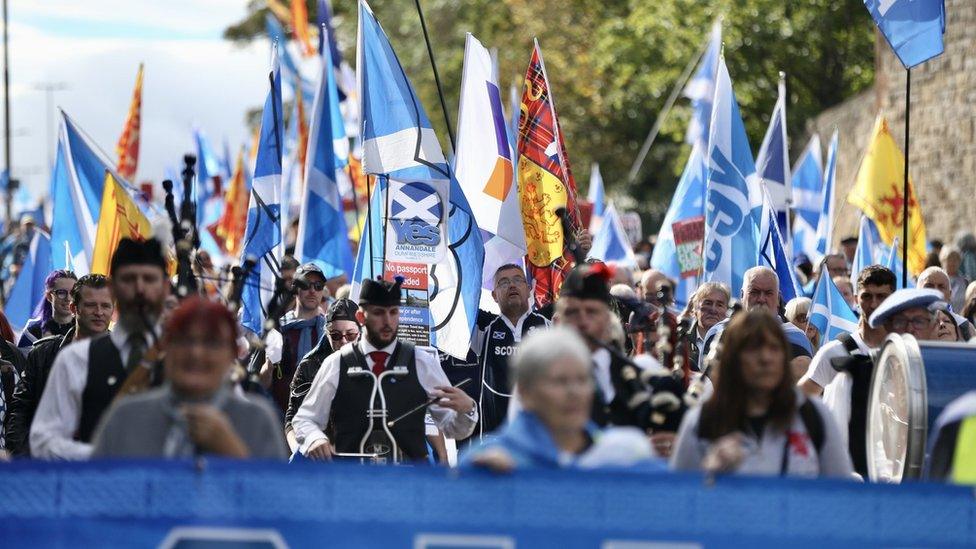
Nicola Sturgeon insists she has a mandate for another independence referendum
Another area of dispute is Brexit. The pair remain at odds over the economic impact of the UK's exit from the European Union, which was opposed by 62% of Scottish voters in the 2016 referendum.
Then - you knew it was coming - there is independence, on which subject, I am told, there was a "robust" exchange of views at the dinner table.
The arguments are well-rehearsed. The SNP leader insists she has a cast-iron mandate for another referendum because in 2021 Scottish voters returned a majority of MSPs (SNP and Greens) to the Scottish Parliament who had made manifesto pledges to hold one.
Mr Sunak says the people of Scotland would prefer a "relentless focus" on the rising cost of living. His allies say the last thing anyone needs right now is more divisive constitutional upheaval.
The national question is not going away though. Polls suggest, external Scotland is split more or less down the middle on whether or not to leave the UK and become an independent country.
Expect to hear a lot more about this as winter turns to spring, with the SNP holding a special conference to discuss Ms Sturgeon's attempt to turn the next general election into a de facto referendum on the subject.
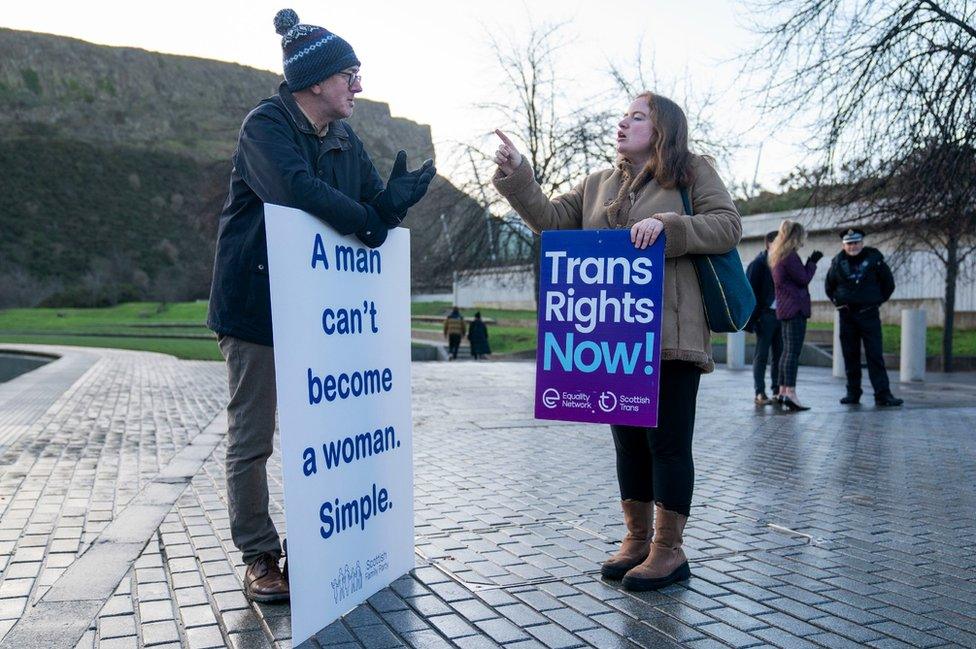
The gender legislation reforms have divided opinion
And finally there is probably the most contentious issue of the hour - gender.
Last month the Scottish Parliament voted in favour of making it easier to legally change gender, clearing away medical and administrative barriers in favour of a process of self-declaration.
But before any Holyrood legislation can receive royal assent, the UK government has a window in which to decide whether it wants to object.
One means of doing so is set out in Section 35 of the Scotland Act 1998, external (the law which sets out the framework of devolution) which allows for the Scottish Secretary Alister Jack to block the bill from receiving royal assent if he has "reasonable grounds to believe" that it "would have an adverse effect" on the operation of the law as it applies to matters reserved to Westminster, rather than devolved to Holyrood.
That nuclear option has never been used - but Number 10 is said to be considering it this time on the grounds that the new Scottish law might be said to interfere with UK-wide equalities legislation, which provides for the provision of female-only services.
The first minister insists it does nothing of the sort, saying the bill is both the right thing to do and within Holyrood's legislative competence.
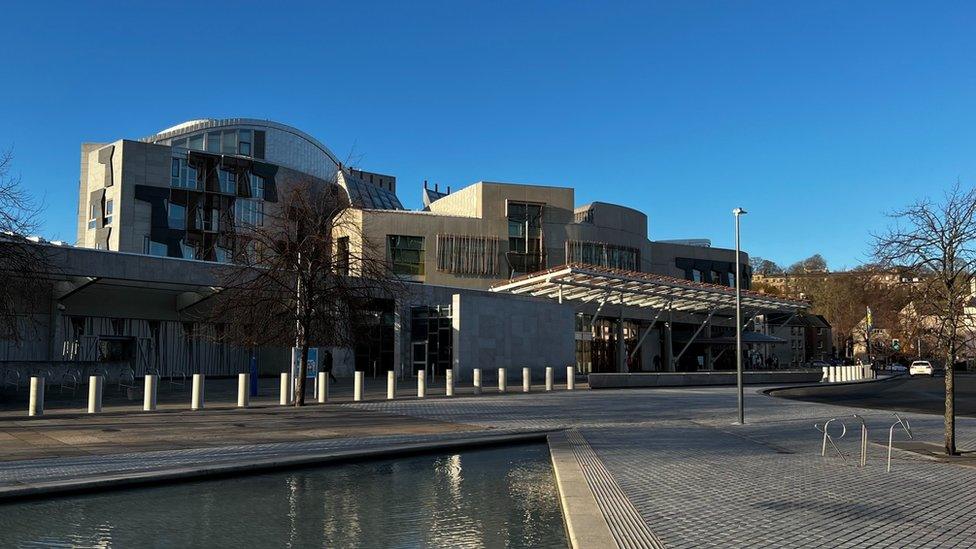
The gender reform legislation was approved by the Scottish Parliament last month
Apparently the two leaders focused on the legislative process rather than debating the substantive issue on Thursday night.
Hours later, the prime minster told Good Morning Scotland on BBC Radio Scotland that the Gender Recognition Reform Bill may indeed have "impacts across the UK".
He added that his government was awaiting final advice on the matter before deciding how to proceed, a practice he described as "entirely standard".
Ms Sturgeon's official spokesman told me the Scottish government would "vigorously contest any attempt to undermine the democratic will of the Scottish Parliament".
The deadline for a decision is next week, setting the stage for a potential battle, encompassing not just the culture wars but the highly-charged issue of the constitution.
Kenny, who loved nothing more than an almighty controversy, external, would have been all over it.